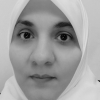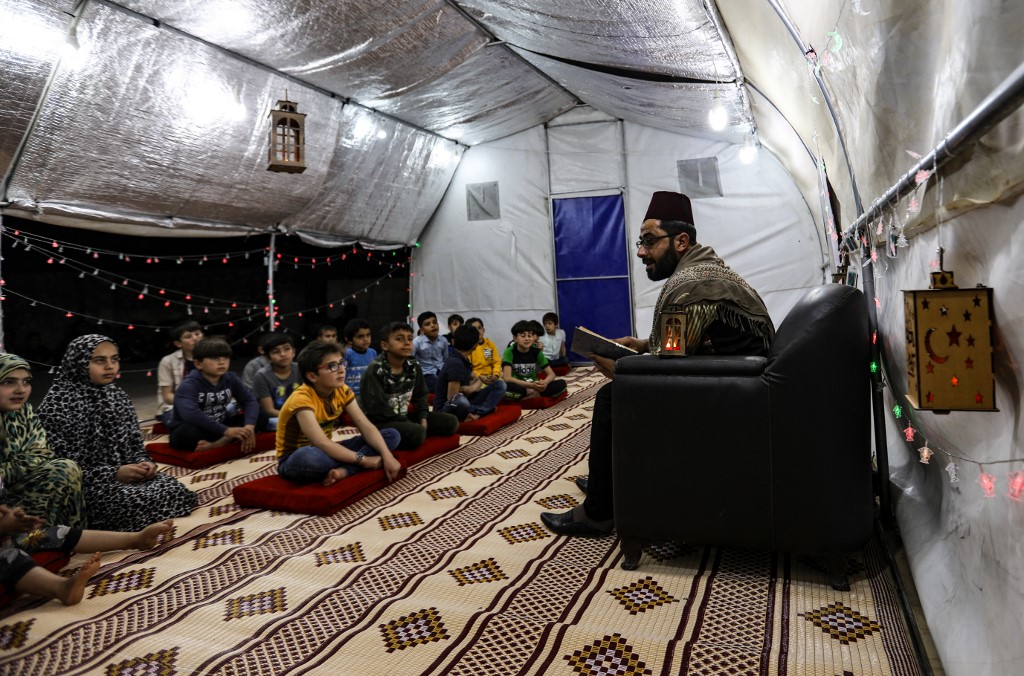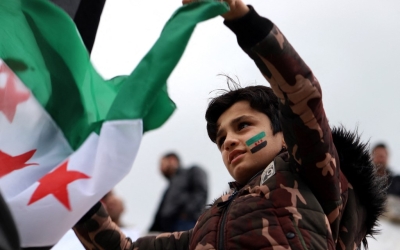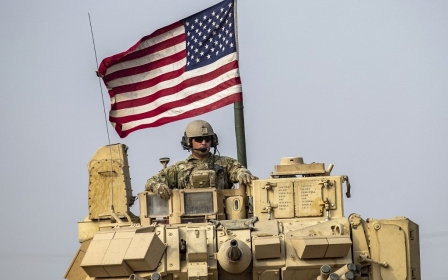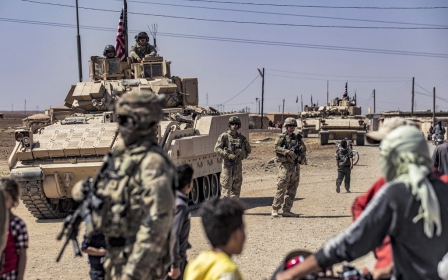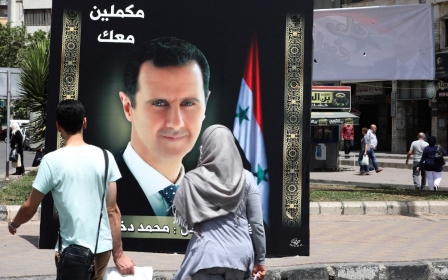Syria war: How to rebuild social trust in a devastated nation
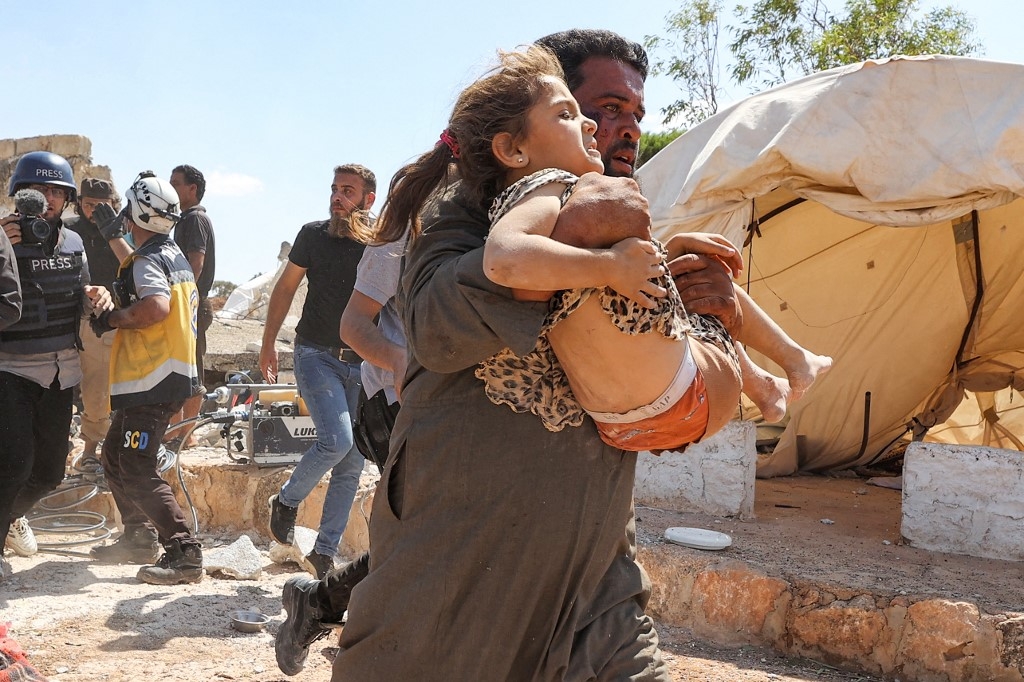
While the physical destruction caused by war can be measured and assessed, other forms of damage are less tangible, and potentially much more difficult to fix. In Syria, which has been embroiled in war for more than a decade, the accompanying loss of social trust threatens the country’s path towards reconstruction.
A recent study by the Syrian Dialogue Center (SDC), “Perceptions of building social trust among Syrians”, points to four categories of social trust: trust in people, in groups, in political institutions and in the international community.
Rebuilding the country will be impossible until real steps are taken to restore community trust and heal internal divisions
A major challenge for Syrians will be to rebuild social trust, which could start at the community level, with school curricula focused on learning how to deal with differences objectively. At the same time, leaders of various religious and ethnic factions must present a balanced discourse aimed at easing tensions and supporting civil peace efforts.
A political solution involving the Syrian regime and opposition forces cannot succeed without social trust, the SDC study notes, warning that “the loss of confidence basically means the absence of the appropriate environment in which to engage in this path”. Indeed, social trust “represents a basic ground for any conceivable solution in the Syrian case … it is the ‘glue of society’”.
Public participation
New MEE newsletter: Jerusalem Dispatch
Sign up to get the latest insights and analysis on Israel-Palestine, alongside Turkey Unpacked and other MEE newsletters
One of the few other studies on this subject, titled “Social Degradation in Syria”, published in 2017 and based on data collected several years prior, looked at Syria’s “social capital index”, which takes into account a number of factors, including public participation in decision-making processes and the “extent of agreement among community members on a common vision at both regional and national levels”.
The study found that Syria’s social capital index had plummeted by around 30 percent since the start of the crisis in 2011. The index of mutual trust between individuals had decreased by 31 percent, while people’s sense of security had fallen by 59 percent amid ongoing military operations, bombing, destruction and arrests.
Since this study was published, levels of social trust have no doubt fallen again, and could be at their lowest levels ever. Amid protracted military operations, economic collapse and forced displacements, social trust - already an issue before 2011, with deep divisions along sectarian lines - has suffered a series of further blows.
Syrian government policies have reinforced these divisions, favouring certain groups and neglecting others, leading to urban-rural rifts and other issues. The regime’s security policies have also fuelled social discord, with opponents targeted for political reasons by Assad loyalists desperate to increase their own power. Corruption, graft and extrajudicial measures by state forces have further damaged societal cohesion. Without any accountability for such crimes, Syrian citizens have been deprived of basic human rights.
Stark divisions
The popular protests that erupted in 2011 hit Syrian society deeply, with stark divisions between those supporting change and reforms, those supporting the Assad regime despite its massive missteps, and a third group that watched in silence, without declaring a position.
Regime loyalists and oppositionists viewed each other as the enemy, while neutral parties were blamed for failing to take a side. Divisions have torn towns, villages, businesses and even families apart. Internal divisions have also emerged among the various sides; for example, the Syrian opposition’s failure to manage areas under its control has led to infighting among those who share the same broader political goals.
International interventions have also fuelled polarisation, with divisions over those loyal to Russia, Iran, Turkey or the US.
Damaged social trust in Syria was arguably one of the key reasons for the 2011 protests in the first place, as people lacked confidence in the Syrian government and its ability to improve their lives or to undertake reforms. Solving the current conflict and rebuilding the country will be impossible until real steps are taken to restore community trust and heal internal divisions.
This requires a frank and transparent dialogue among all Syrians across the political spectrum, with a goal to building a common understanding of the social contract binding them all. Such a dialogue must coincide with a transitional justice process to punish those involved in war crimes and crimes against humanity, and to uncover the fate of missing persons and compensate their families.
Any political solution must allow for broad public political and social participation, and it must be devised by Syrians themselves. Only then can the country escape the cycle of war and move towards a sustainable peace.
The views expressed in this article belong to the author and do not necessarily reflect the editorial policy of Middle East Eye.
This article is available in French on Middle East Eye French edition.
Middle East Eye delivers independent and unrivalled coverage and analysis of the Middle East, North Africa and beyond. To learn more about republishing this content and the associated fees, please fill out this form. More about MEE can be found here.


